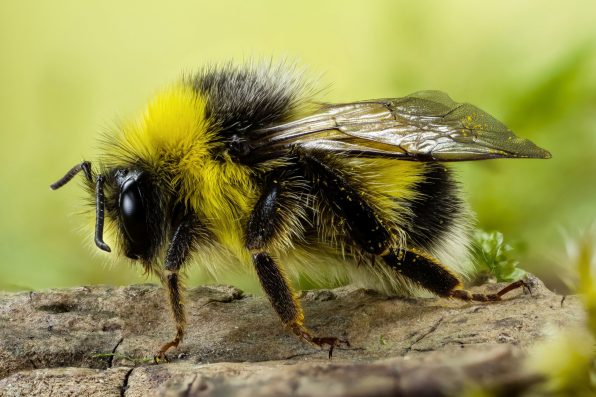Bumblebee Queens Prefer To Hibernate In Pesticide-Contaminated Soil, And Scientists Don’t Fully Understand Why

For some reason, bumblebee queens prefer to hibernate in soil contaminated with pesticides over clean soil. Scientists can’t seem to figure out the motivation behind this bizarre behavioral pattern.
The new discovery is alarming and raises concerns for the bumblebee’s health and survival. Researchers from the University of Guelph in Ontario, Canada, studied queens of the common eastern bumblebee (Bombus impatiens).
“Some bee behaviors are not well understood, and we wanted to see if these bumblebee queens exhibited avoidance behavior that might reduce their risk of harm from pesticide exposure in the field,” said Dr. Nigel Raine, an environmental science researcher from the University of Guelph.
The team conducted field experiments in which the bumblebee queens were left to fly around in outdoor enclosures, mate, and select a site to hibernate in for the winter.
The options they had to choose from were clean soil or soil contaminated with one of five pesticides, including insecticides and fungicides. The researchers then sifted through the soils to look for hibernating bumblebee queens.
They realized that the queens tended to avoid the clean soil and were about twice as likely to be attracted to the pesticide-contaminated soil. Most of the bees survived, but the colony suffered the consequences of this preference.
“This raises serious concerns for bumblebee health, especially as this group of important insect pollinators already face many challenges,” said Dr. Raine.
Bumblebee queens normally hibernate underground during the winter. In the spring, they emerge to start new colonies. The researchers also investigated how bees responded to contaminants at this life stage.
In the past, studies have shown that pesticides on crops can deter or attract bees, depending on the environmental situation and the type and concentration that was used.

Maciej Olszewski – stock.adobe.com – illustrative purposes only, not the actual bumblebee
At first, Raine and colleagues speculated that the bumblebee queens would simply avoid the pesticide-contaminated soil, but the results revealed the opposite. They do not fully understand why that was the case.
It is possible that pesticides made the soil more appealing to the queens by altering its properties. For instance, the fungicides could have killed off soil fungi and nematodes. During hibernation, queens might stay away from soils with fungi because they can be harmful.
Or, the queens may be more inclined to choose soil with pesticides because they were previously exposed to them in their environment.
They may also be searching for something new. In bees, novelty-seeking behavior is common and can lead them to discover additional resources.
Further research is needed to completely grasp the mechanisms driving the queens’ behavior. However, these findings highlight the importance of reevaluating how pesticides are applied and regulated in agriculture.
Pesticide exposure is causing the decline of insects all over the world. They can negatively impact bees’ abilities to collect and feed on pollen and nectar, which could have detrimental effects on our global food system.
“As we move forward, it’s crucial to investigate how agricultural practices—like the types of pesticides used, the methods of application, and the management of vegetation—impact the accumulation of pesticide residues in soils where queens are likely to hibernate,” said Dr. Sabrina Rondeau, who is now a postdoctoral researcher at the University of Ottawa.
“By better understanding how pesticide residues accumulate in the soils and how they affect bees, we can find ways to protect these essential pollinators.”
The study was published in Science of the Total Environment.
Sign up for Chip Chick’s newsletter and get stories like this delivered to your inbox.
More About:Animals